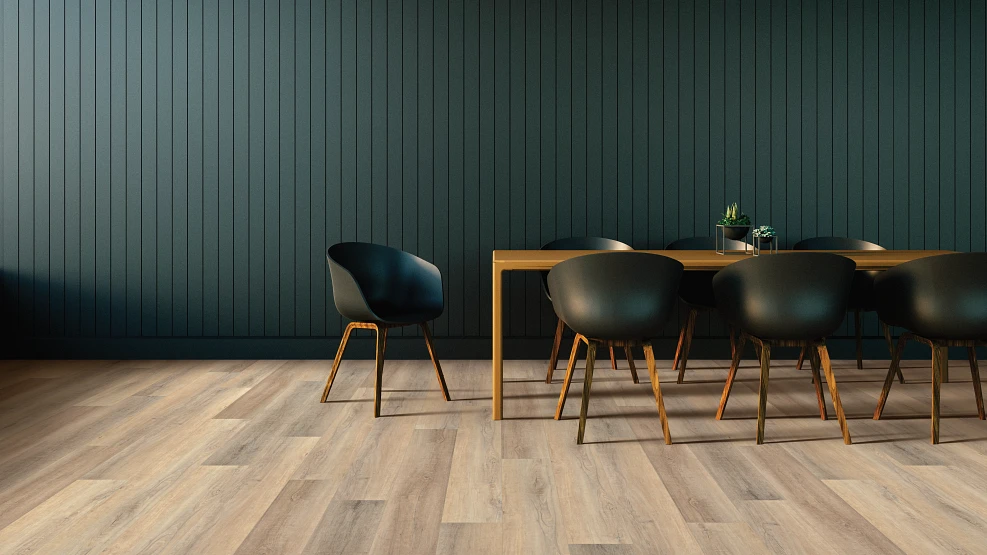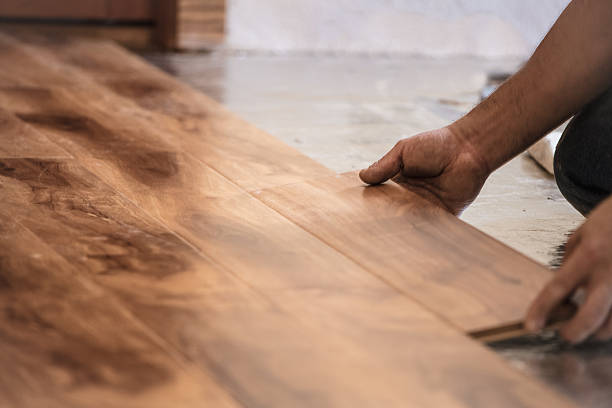The Benefits and Versatility of Engineered Hardwood

The Benefits and Versatility of Engineered Hardwood
When it’s time to redo your floors, the options are numerous and can be overwhelming. There are pros and cons to everything and flooring is no different. Classics like hardwood floors are hard to resist, but the benefits of newer options are equally hard to overlook. Unless you have a generous budget, new hardwood flooring may be out of reach. Not so with other hardwood-looking options. One such option, engineered hardwood flooring, is both affordable and versatile. Read on to find out more!
How Affordable is Engineered Hardwood?
Engineered hardwood floors, which consist of a thin layer of hardwood flooring glued to a core made of composite plywood, offer notable savings when compared to traditional hardwood flooring. Without doing extensive bargain hunting, it’s possible to find a wide variety of options between $2.50 and $10/ sq ft. While that is a wide range, most were around $5/sq foot. According to Forbes Magazine, the average cost of traditional hardwood floors comes in around $6-10/ sq foot. However, installation costs must be considered, as few people have the time, tools, and ability required to install their own hardwoods.
I Can Install Engineered Flooring Myself?
In a word, Yes! Engineered floors are not difficult to DIY. Installation requires no nails or gluing, although power tools are necessary for cutting boards to length or around doorways and existing trim. As long as you are moderately handy, self-installing is an option and makes engineered floors a more affordable choice. If you do choose to opt for professional installation, they don’t require quite as much expertise when compared to traditional hardwood floors.

Where Can I Put Engineered Wood Floors?
Engineered floors can be installed in places where hardwood floors would be discouraged. They tend to be more forgiving with moisture and temperature fluctuation and are therefore more versatile. Consider them in your kitchen, foyer, or basement, provided it is temperature-controlled and isn’t prone to flooding.
While companies are coming out with more waterproof versions, all engineered floors are water resistant; a little water isn’t a problem, but they don’t tolerate being submerged or exposed to extended periods of wetness. In addition, wildly fluctuating temperatures can cause boards to contract or expand, which can create gaps or buckling. To avoid this, don’t install engineered floors in an area that gets excessively cold or hot. Also, make sure you choose the appropriate underlayment, if applicable, and that your subfloor is in good shape.
How Do I Maintain Engineered Wood?
Ease of use is always an important consideration when it comes to home improvement projects. Engineered floors are very user-friendly. They can be easily kept company-ready with a broom or dust mop and an occasional cleaning with a product formulated just for them. Check with your specific manufacturer to be sure, but most tolerate washing, provided you don’t leave water to settle or soak into the floors. As always, you want to clean up wet spills and pet accidents right away and sweep up grit that could cause scratches. Engineered floors have a wear layer that can be refinished but the best way to keep them from needing refinishing is by staying on top of basic care.
So, are engineered floors right for you? They are, if you like the feel of wood underfoot, but also the feel of money in the bank. A great alternative to traditional hardwood, engineered floors are a step above other popular options. They are available in a wide variety of finishes to fit any decor, and they can be self-installed in many areas of your home. If you need more information, or if you are ready to take the plunge into a New Year flooring project, visit the designers at Kelly's Carpet & Furniture. They will help you pick out the perfect product and set you up with an installer who can help you revitalize your space.
